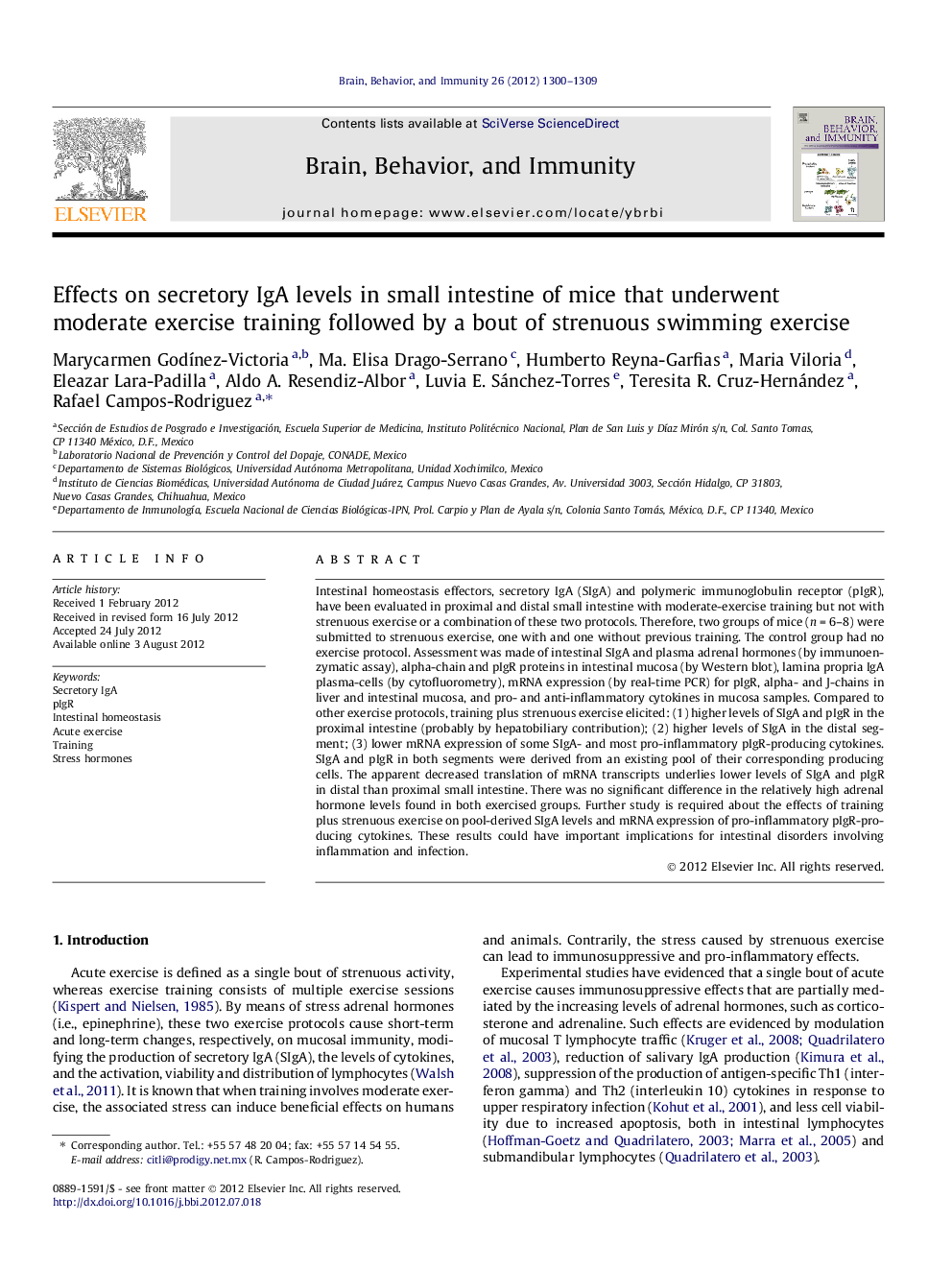| Article ID | Journal | Published Year | Pages | File Type |
|---|---|---|---|---|
| 922178 | Brain, Behavior, and Immunity | 2012 | 10 Pages |
Intestinal homeostasis effectors, secretory IgA (SIgA) and polymeric immunoglobulin receptor (pIgR), have been evaluated in proximal and distal small intestine with moderate-exercise training but not with strenuous exercise or a combination of these two protocols. Therefore, two groups of mice (n = 6–8) were submitted to strenuous exercise, one with and one without previous training. The control group had no exercise protocol. Assessment was made of intestinal SIgA and plasma adrenal hormones (by immunoenzymatic assay), alpha-chain and pIgR proteins in intestinal mucosa (by Western blot), lamina propria IgA plasma-cells (by cytofluorometry), mRNA expression (by real-time PCR) for pIgR, alpha- and J-chains in liver and intestinal mucosa, and pro- and anti-inflammatory cytokines in mucosa samples. Compared to other exercise protocols, training plus strenuous exercise elicited: (1) higher levels of SIgA and pIgR in the proximal intestine (probably by hepatobiliary contribution); (2) higher levels of SIgA in the distal segment; (3) lower mRNA expression of some SIgA- and most pro-inflammatory pIgR-producing cytokines. SIgA and pIgR in both segments were derived from an existing pool of their corresponding producing cells. The apparent decreased translation of mRNA transcripts underlies lower levels of SIgA and pIgR in distal than proximal small intestine. There was no significant difference in the relatively high adrenal hormone levels found in both exercised groups. Further study is required about the effects of training plus strenuous exercise on pool-derived SIgA levels and mRNA expression of pro-inflammatory pIgR-producing cytokines. These results could have important implications for intestinal disorders involving inflammation and infection.
Highlight► Strenuous exercise after training elicited higher pool-derived levels of SIgA and pIgR in small intestine than strenuous exercise without training.
